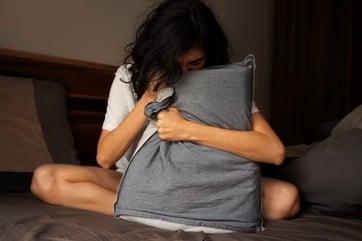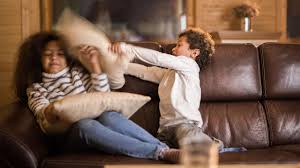Community Mental Health Resources
Experience a world where nothing stands between you and your mental health—where support is accessible, stigma is nonexistent, and taking care of your well-being is effortless. In this world, you have the freedom to focus on your mental wellness, knowing help is always within reach.






Addiction Psychotherapy
Insomnia
Oppositional Defiant Disorder
Addiction psychotherapy helps treat substance use disorders by addressing root causes. CBT teaches coping skills and corrects harmful thinking. Motivational interviewing increases willingness to change. DBT helps manage emotions and improve relationships. Family therapy and support groups provide additional support. Combined with medication, psychotherapy offers a holistic approach to recovery and preventing relapse.
Insomnia treatment includes lifestyle changes, therapy, and sometimes medication. CBT-I addresses thoughts and behaviors affecting sleep. Good sleep hygiene, like a regular sleep schedule and relaxing bedtime routine, is important. Avoiding stimulants like caffeine and alcohol near bedtime can also help. Medications, such as sedatives, may be used short-term if necessary.
Treatment for oppositional defiant disorder typically involves a combination of therapy, parenting strategies, and sometimes medication. Cognitive-behavioral therapy helps individuals manage emotions and improve communication skills. Parent training teaches effective discipline techniques and enhances family dynamics. Setting clear expectations and providing consistent consequences is crucial.






Depression
Anxiety
PTSD
Depression is a common mental health disorder characterized by persistent feelings of sadness, loss of interest or pleasure in activities, changes in appetite or weight, difficulty sleeping or oversleeping, fatigue, feelings of worthlessness or guilt, difficulty concentrating, and thoughts of death or suicide. It can significantly impair one's ability to function in daily life and can have a profound impact on relationships, work, and overall well-being.
Treatment for anxiety typically involves therapy, medication, and lifestyle changes. Therapy, particularly cognitive-behavioral therapy (CBT), helps identify and challenge anxious thoughts. Medications like SSRIs or benzodiazepines may be prescribed. Lifestyle changes such as regular exercise, stress management techniques, and relaxation exercises can also help. Support groups and alternative therapies like mindfulness can provide additional relief.
Post-traumatic stress disorder (PTSD) treatment commonly includes therapy and medication. Cognitive-behavioral therapy (CBT), particularly exposure therapy and cognitive processing therapy, helps individuals process traumatic experiences and manage symptoms. Eye movement desensitization and reprocessing (EMDR) is another effective therapy. Medications like SSRIs or SNRIs may be prescribed to alleviate symptoms such as anxiety and depression.
Foundation
Supporting families through community and outreach programs.
Contact
Subscribe
info@oiotafamilyfoundation.org
Ph #: 888-528-8831
Fax #: 888-259-4715
© 2024. All rights reserved.
